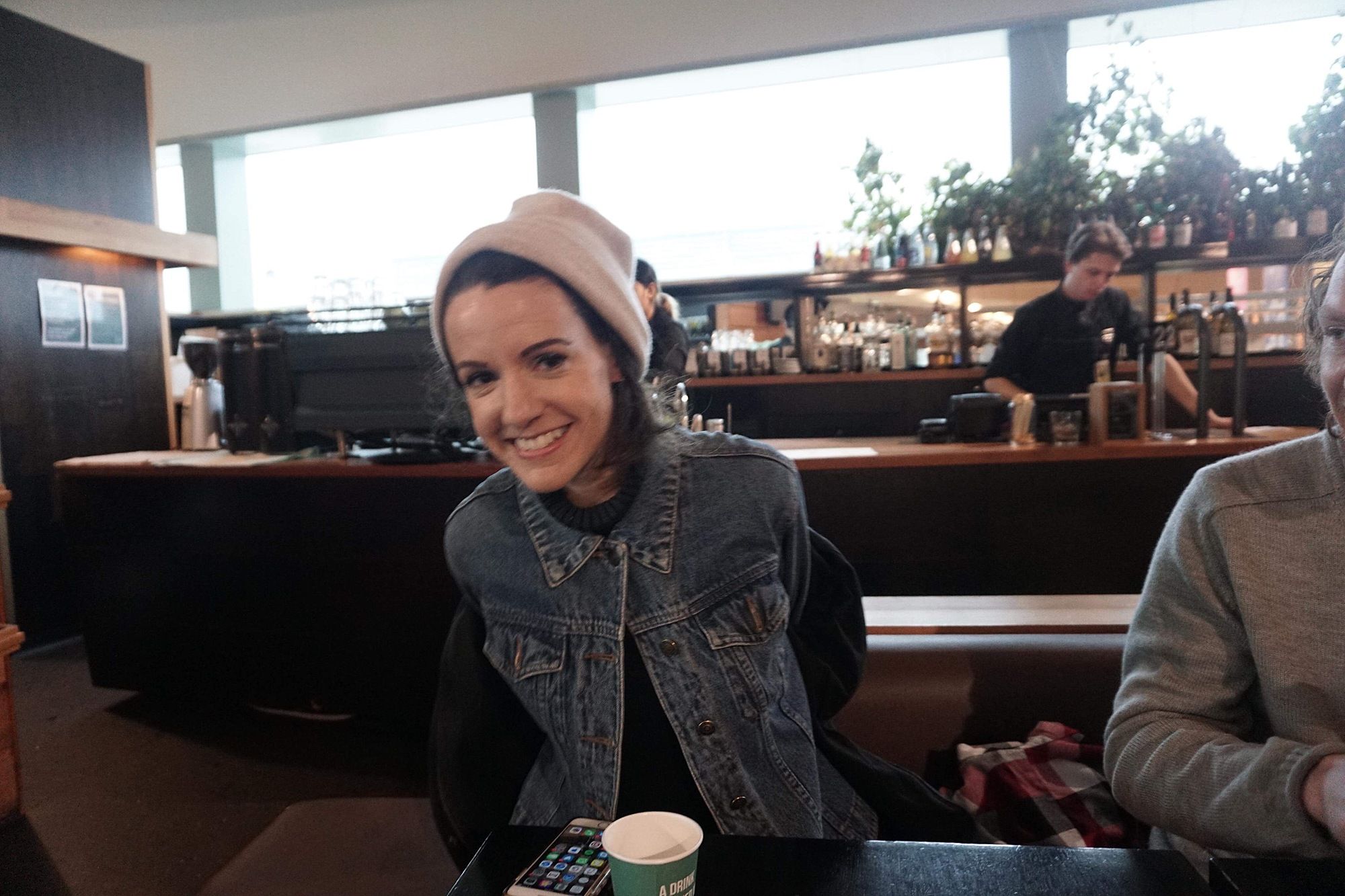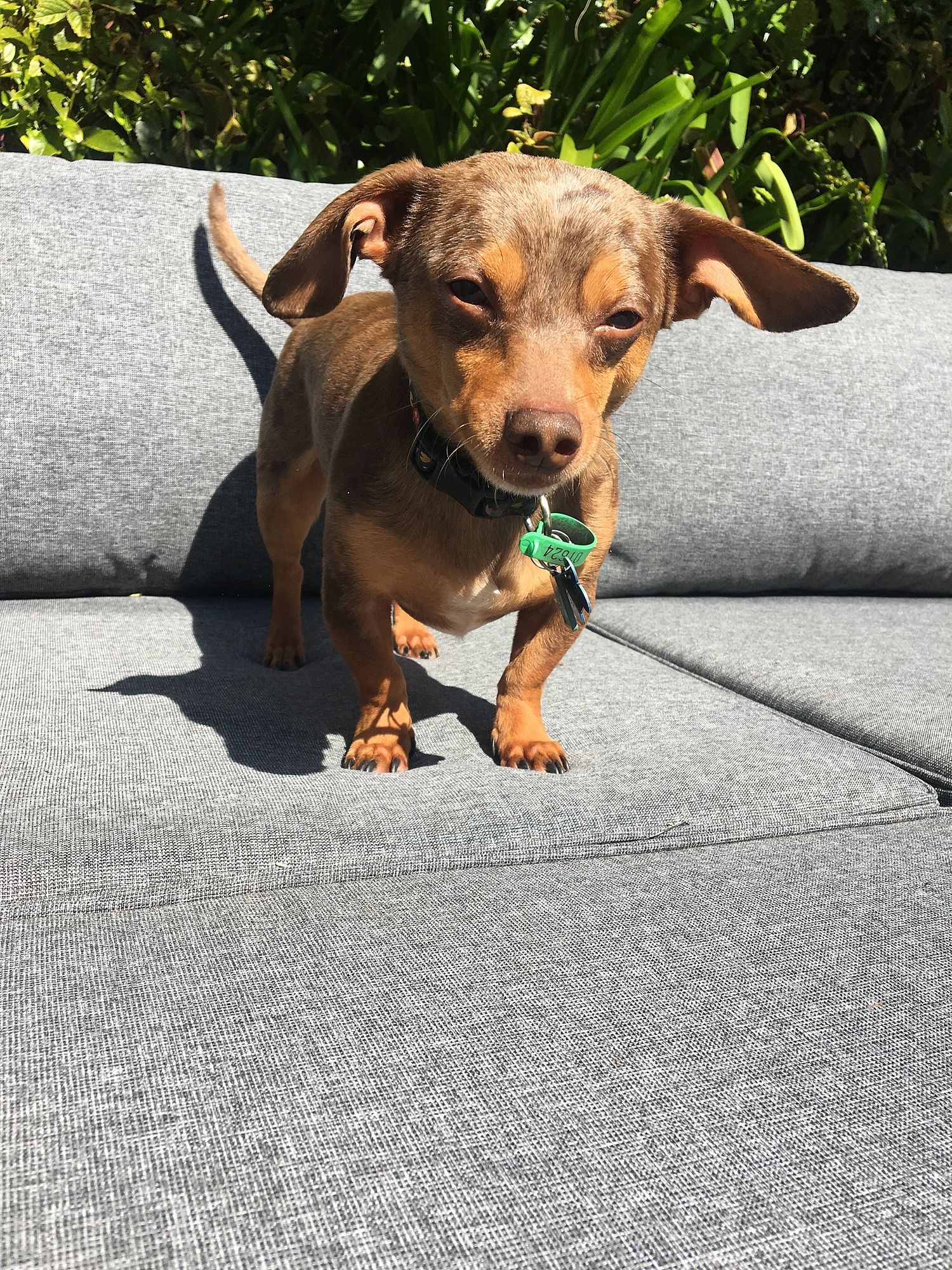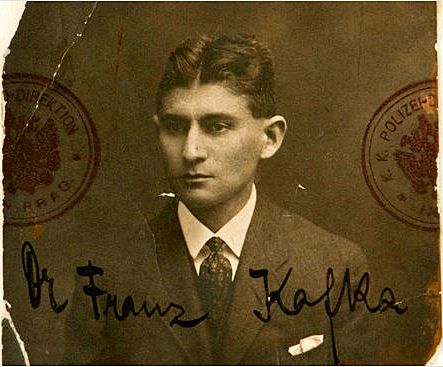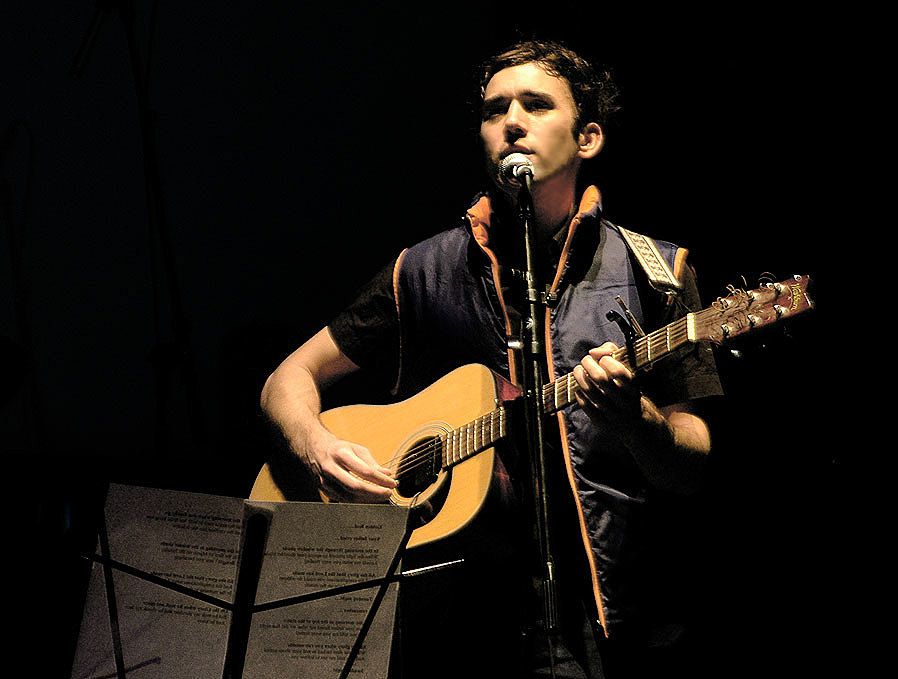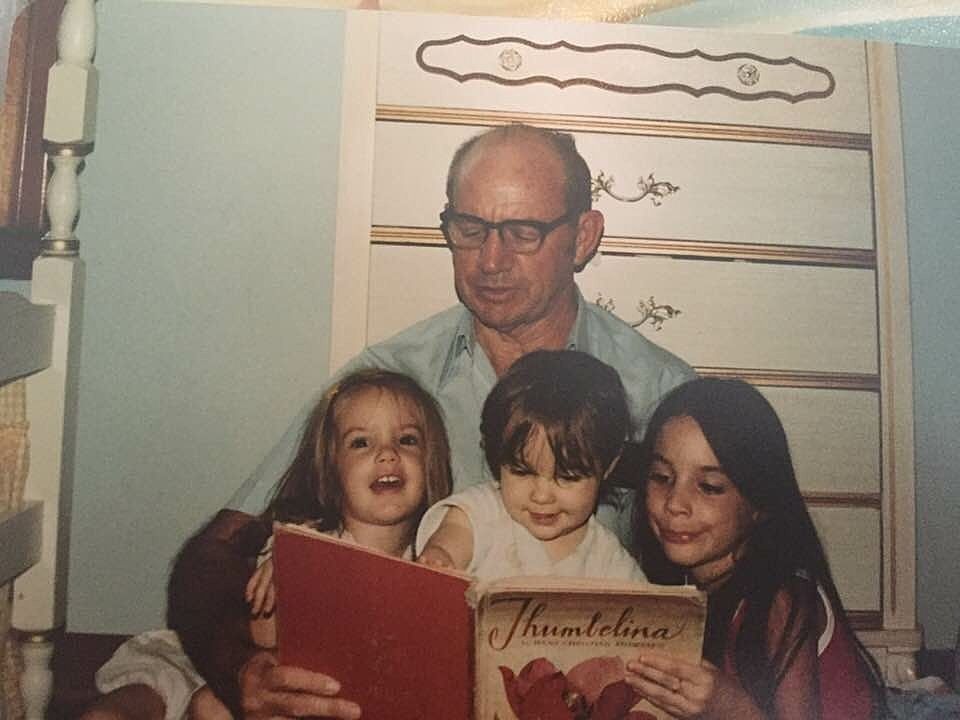Loose Canons: Lori Leigh
Playwright, director, Shakespeare expert and improv tycoon Lori Leigh talks about the people, the art and the dogs that have inspired her.
Loose Canons is a series in which we invite artists we love to share five things that have informed their work. Meet the rest of our Loose Canons here.
Lori Leigh is professional playwright, dramaturg, and theatre director based in Wellington, New Zealand. She has received several awards and nominations for her work, including the 2017 Playmarket Adam NZ Play Award (Runner-up) for her play Uneasy Dreams and Other Things, a Wellington Theatre Award (formerly Chapman Tripp) and a nomination for Outstanding New Playwright in 2014 for her play Revelations. Her production of Cassandra Tse’s Long Ago, Long Ago received four Wellington Theatre Awards nominations in 2015, including the award for best new New Zealand play, and her recent production of Finnius Teppett’s Marine Snow (2017) received WTA nominations in all design categories.
As a dramaturg, Lori has worked on Bright Orange Walls theatre company’s award-winning Shakespeare productions, including A Midsummer Night’s Dream (2015) and Twelfth Night (2016). She has also directed and dramaturged for Wellington Summer Shakespeare and is currently the dramaturg for their upcoming 2019 production of Hamlet. Lori has been Artistic Director of PlayShop Performance Company for five years and won Best Improv in the NZ Fringe Festival Awards in 2015 for her original show 10 Things I Hate About Us.
Lori has a MFA in theatre from Sarah Lawrence College in New York and a PhD from Victoria University of Wellington, where she is currently Programme Director of Theatre and teaches undergraduate and postgraduate theatre as well as coordinating the MFA programme. She presents and publishes widely on Shakespeare, gender and theatre.
Uneasy Dreams opens 10 October at Circa Theatre and runs to 27 October 2018 as part of WTF! Womens Theatre Festival. Directed by Sara Brodie (The Curious Incident of the Dog in the Night-Time, ATC 2015), Uneasy Dreams is a new play inspired by Franz Kafka’s The Metamorphosis. With pop music. And a penis.
Dooley Dapple Dandy
Dogs are awesome. They don’t operate on subtext. They just eat, play, love (and sleep). I can’t remember if that’s a movie title or cheap sign from Typo? Dooley is my best friend and my mascot.
I’ve had a lot of grief in my life in the past few years – all from suicides or sudden deaths, mostly young people. Death changes you. The worst grief was from my mom’s death in 2015. She was in her early 60s. My mom has always and will always be an inspiration for what I create. Dooley was her dog, and I had promised I would look after him if anything ever happened to her. So when she died I imported him from the United States to New Zealand. (No easy feat. P.S. There’s an upcoming play about trying to import a dog, called The Turkish Dogs are Racist, and I can’t wait to see it.) Dooley’s like having a living piece of my mom. Whenever I feel sad or just generally let down by the world, whenever I want to give up, he’s there with his warm, brown dappled fur reminding me of home and the simple joys of life. I’ll often bring him wherever I go – rehearsals or class – and the smiles he brings are infectious. I really love walking into a room with Dooley and watching people light up. It reminds me how important kindness and joy should be in any theatre space. I also think it’s important for artists to find things that make them happy which aren’t theatre. Dooley is one of those for me.
Metamorphosis and language
“A thinking woman sleeps with monsters.” – Adrienne Rich
I’m fairly obsessed with the idea of transformation. It’s endlessly interesting to me the human response to change of any kind. What stuff we cling to and how identity works. It’s everywhere. Literature like Ovid, Shakespeare, Kafka. Philosophy like Deleuze and Guatarri and feminist criticism like Elizabeth Grosz – ideas of ‘becoming’. My favourite theatre moments are when, before an audience’s eyes, one thing becomes something else – like when a sheet becomes a storm or a fishtank becomes a bathtub and then the entire ocean.
And the transformation of language. I love words, and I love the idea of word architecture – the arrangement, choice and texture of words to build a form. I love the way language can transform with rhetorical devices like puns, cacophony, rhyme, antithesis, etc. It’s for this reason I love poetry, and I think most of my plays and the plays I’m attracted to as a director/dramaturg have poetic dialogue. Beautiful or funny language will always have my heart, and you have to be in love with the work.
Vinyl records
I love music. All of my plays have soundtracks – songs and rhythms that, in my head if nowhere else, are informing the dialogue. When I direct, I often ask actors to make a playlist for their character. It’s great for inspiration, development, and it provides awesome warm-up music.
There are quite a few things I love about vinyl in particular. For one, it really forces you to listen to an album as a whole as opposed to a random selection of songs. An album has a narrative. Take Sufjan Stevens’ Carrie and Lowell, one of my faves, an emotionally devastating album about loss. Most of the songs are written about Stevens’ mom, Carrie. That album is a bit of a catharsis cocktail for me.
I also love the ritual of vinyl. First there’s the shopping: music stores and op-shop finds. Wellington is great for those, with Slow Boat, Death Ray, Rough Peel. Then there’s the physical record with its album sleeve, lacquer, grooves. Placing it on the player and watching it spin. Flipping sides. Vinyl sounds better. Analogue records capture the original soundwave. They have more musical information, to put it another way. Listening to a record is warm. I even like the degradation vinyl is subject to. That also tells a story. There’s nothing like the pops and crackles of an old jazz album.
A lot of vinyl is of an era. Now it’s trendy to make LPs again, but when I first started collecting vinyl there wasn’t much new stuff. The pop and rock was all of the 60s, 70s, 80s, the music of my parents. I really love older music. Nostalga. Memories.
If you see Uneasy Dreams, it’s unmistakeable the influence music has on my writing. The characters play out a lot of their moments and relationships through 80s pop in particular, which I imagine to be their retro.
Truth and stuff
Playwright Jessica Goldberg says you’ve got to write your “stuff.” I’ve heard Victor Rodger call it “speak your truth.” Marsha Norman puts it this way, “That means that you know the subject that has been assigned to you by the universe and your upbringing and your presence on the planet and your accident of birth. You know what your subject is and you don’t try and write anything else, you just write straight at it, whatever it is. It’s your stuff to write about.”
A lot of my truth and stuff is about empowered representation and longing to see female and queer stories on stage. Both of these are still not happening, not enough. Earlier this year I was speaking out against an ‘all-male feminist’ version of a Shakespeare play. As long as this stuff is still happening, I’ll still be writing plays and making work. As long as stuff is still keeping me up at night (and it is), I’ll still be doing this. I don’t want to be invisible, and I don’t want others to feel invisible.
My sisters
I am a middle child and have a younger and an older sister; all of our names start with ‘L.’ When I was a kid, my parents bought me a Judy Bloom book called The One in the Middle is a Green Kangaroo. I’m still hopping around thinking I might be green with a big pouch. Like all writers, I’m probably always working on some under-treated childhood wounds, and my sisters are caught up in that. I’ll often make something and then see connections afterwards. My play Revelations (BATS, 2014) was about two generations of sisters. And in Uneasy Dreams, Sam, the protagonist, is a photographer; my sister Lindsay studied photography and took a lot of self-portraiture. I remember going to her graduation exhibition and seeing these huge photos she had taken of herself. I was struck by how different she seemed. I wanted to get inside the head of someone who was constantly seeing the world through a lens. Perspective.
The biggest way my sisters inform my work is that they love me unconditionally. If someone loves you like that it gives you that little bit of courage to do crazy things. Like writing a play is a terrible idea. It’s impossible to get right and likely to come out a huge mess. Hopefully, it’s a good mess with a lot of risk, bit of failure, but you leave asking some difficult questions and/or thinking about what it means to be a better human.
Uneasy Dreams and Other Things runs from 10 to 27 October at Circa Theatre. Tickets available here.
